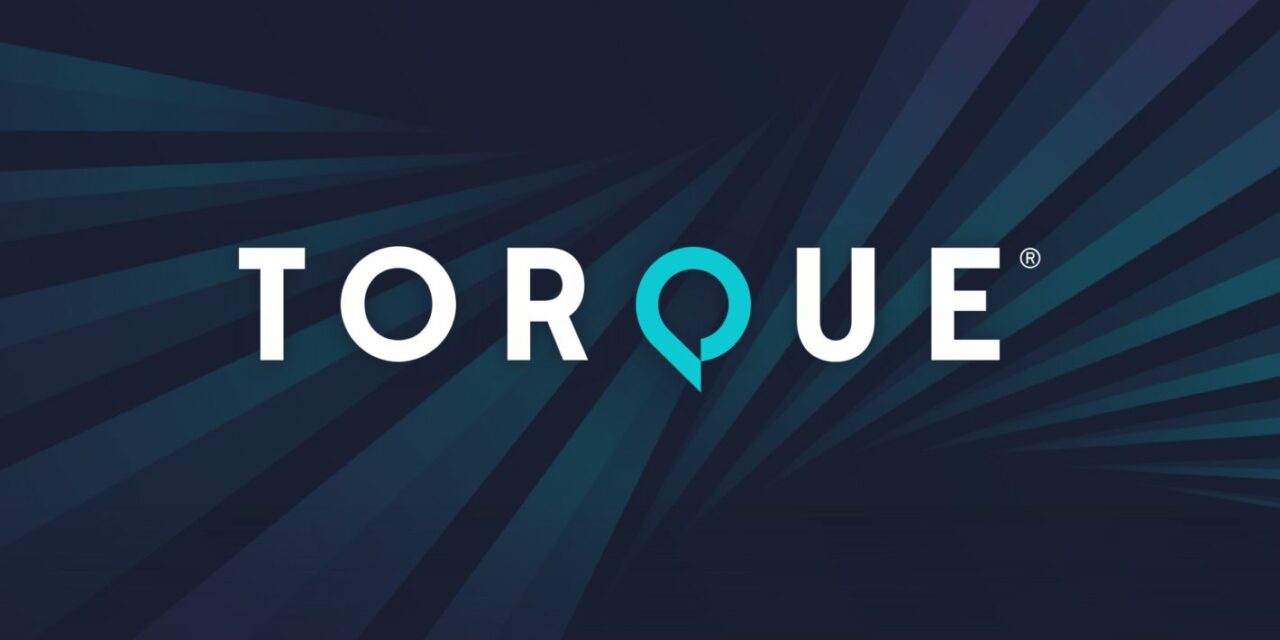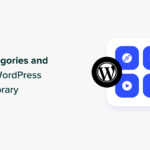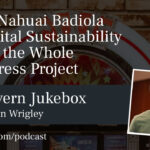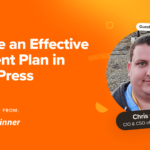Welcome to Press This, the WordPress community podcast from WMR. Each episode features guests from around the community and discussions of the largest issues facing WordPress developers. The following is a transcription of the original recording.
Powered by RedCircle
Doc Pop: You’re listening to Press This, a WordPress community podcast on WMR. Each week, we spotlight members of the WordPress community. I’m your host, Doc Pop, I support the WordPress community through my role at WP Engine and my contributions over on Torquemag.io.
Each month on Press This, we like to do a segment called “Word Around the Campfire” where I like to invite some friends around and we catch up on WordPress news and share recent stories.
And we’ve got some really fun topics today. We’re going to be talking about a new video game that’s built entirely within WordPress. We’re going to talk about potentially switching over from meetup.com to GatherPress, and we have a bunch of other interesting topics we’re going to bring up as well as some news about upcoming WordPress meetups and WordCamps.
So stay tuned, but before we do all that, let’s introduce our guests. Today we have Mike Davey, a Senior Editor at Delicious Brains. Mike, how are you doing today?
Mike Davey: Not too bad. Doc How are you?
Doc Pop: I’m doing well, we’re recording this right now on Groundhog day. So if I sound distracted, Mike, I’m just watching out the window, looking for groundhogs, trying to find out what the situation’s going to be like weather-wise, but I’m going to give you all my full attention for the next 26 minutes.
So let’s move on to our next guest, Aurooba Ahmed, a Senior Web Developer at WP Engine and a co-host of the View Source podcast. Aurooba, thanks so much for joining us today.
Aurooba Ahmed: So happy to be here.
Doc Pop: All right, well, we’re going to kick this off with some WordPress core news. A couple of updates are out there. Aurooba, before the show, you were talking about a new update with a PHP autoloader that’s been talked about in WordPress core. Can you tell us more about that?
Aurooba Ahmed: Yeah, so this is a really interesting issue because it’s been open for a while, but it has taken, and it was opened eight years ago as a way to make it easier to load WordPress core files into the system. But it took a long time to get this finalized, and there was lots of different reasons for why that was.
But now we’ve actually taken some steps and there is an actual solution that is ready. It’s been battle tested and could be used to create even further modernization inside WordPress. You know, with the fact that we have Gutenberg and the block editor, we’re seeing so much modernization happening on the content side, so it’s really nice to see modernization happening in other parts of WordPress under the hood as well. So that really excites me.
Doc Pop: This ticket was opened eight years ago. What, what happened? Was this a failure on someone’s part, or is it a really tough bug to crush, or did it just somehow fall through the cracks?
Aurooba Ahmed: I wouldn’t say that it fell through the cracks. It—there are other autoloaders out in the wild outside of WordPress already, And, you know, we in WordPress like to have backwards compatibility and we really care about building things that’s gonna work for all the millions of sites that are using WordPress.
So it’s a contentious issue that was hard to come on agreement with. But then once sort of a path was figured out, building it, and then finding problems and hiccups, and then fixing those—I mean, all of that takes time and all of it is volunteers, right? For the most part, we’re all volunteers who contribute to WordPress, so having the resources to do it in something that isn’t necessarily fixing what’s broken, but rather an improvement, can take time.
Doc Pop: And I see here Ari Stathopoulos was the person who wrote this post on make.WordPress.org. And also shout out to Joost de Valk who did the review on the post.
And Ari says adding a PHP autoloader to WordPress is a relatively trivial challenge as the pull request demonstrates. But it sounds like there’s also maybe some issues with overriding core classes and things like that that might have hung up this project a little longer than it should have been.
Aurooba Ahmed: Yeah. You know, there’s always the question of how much flexibility and openness do we wanna provide within WordPress to let, you know, people do not necessarily bad things, but not best practices. But one of the things that someone in the comments of that post said was, you know, when you have access to the file system, you can do whatever you want.
So this is something that people could do before and they’ll be able to do later too. We can’t control that outcome. So I think that took a little while to, you know, sink in for the team.
Doc Pop: Next, I want to talk about a WordPress proposal to test GatherPress on WordPress.org. And this is interesting for a whole bunch of reasons.
First off, GatherPress is a really cool project. It’s built entirely, obviously, with WordPress. And I think it’s built on top of BuddyPress or kind of using BuddyPress to handle certain things like member signups and things like that.
But GatherPress is a place to list events and to find events and to say, “Hey, I’d like to go to that event.” So kind of an event management system.
It’s very similar to meetup.com, but meetup.com is proprietary and meetup.com was recently acquired, so I think a lot of us in the past few years have learned that when things get acquired, oftentimes it could be the end and we start to panic and we start to wish that we had our own versions of things.
And if you look at WordPress, if you look at WordPress.org, WordPress.tv—any of the WordPress sites—they’re powered by WordPress, everything about them. Like I mentioned BuddyPress before when you’re on WordPress.org, if you have, like, an avatar and a username, that’s BuddyPress, that’s a non-proprietary system, that’s an open source system powered by WordPress.
And if you look at everything in the ecosystem, the one thing that’s going to stand out to you is meetup.com. Now, some people will say meetup.com being on another platform makes it more accessible for people to find meetups, to find WordPress meetups, which is, of course, the whole point. We’re trying to get people to find them.
I feel like when I go to the San Francisco WordPress meetups, it is largely people showing up who never knew about the meetups before. And they searched on meetup.com just for anything tech related. And they found this, they found something that they thought was pretty cool.
And so that’s, that’s, you know, here at least, it seems like meetup.com might be a place that’s worth hanging onto, but I’m saying that as someone who doesn’t really want us to be using a proprietary system. And if you talk to the GatherPress folks, they actually say that, anecdotally on their side, they do WordPress meetups, like real-world meetups, and most of the attendees there say, “Oh, we didn’t use meetup. We actually found this event in this city through the dashboard.” They were looking at the WordPress dashboard. They saw an event in their area and they went to it.
Mike, do you have any thoughts on this?
Mike Davey: It seems to me that this is, this is a good idea just going into the sort of open source ethos that is WordPress. It seems to me as if maybe we shouldn’t rely on a proprietary third source for something that, you know, we tend to use a lot.
And I mean that that proposal actually, like, kind of goes into the problem with meetups and other commercial apps is that you don’t own your data. Your data—it’s up to the owner to keep that data private. Right? You don’t get really—you don’t get control of the roadmap or in enhancements and you don’t even get to look at them a lot of the time.
Whereas with something that’s more open source, you probably do. And if you want to, if you want something changed, you can probably become a contributor to that project, right?
Doc Pop: Yeah that’s definitely it—it’s more in the spirit of the WordPress project. And I will say that meetup.com does have free services, but WordPress meetups, we’re actually benefiting from the paid level. So it actually turns out that WordPress community support PBC, which is an organization that holds the purse for a lot of WordPress projects, a lot of WordPress.org projects, they were paying for, they probably had a special deal, but they were paying for the next tier up so that we got those, those nicer advantages.
And if people like me, if I put it together an event in San Francisco and I wanted all those features, I wouldn’t have to pay at that pro level, it was covered for me as long as it was a WordPress event.
And you know, a lot of that is people are kind of nervous about what’ll happen after this acquisition. But Mike Atari, I believe is his name. Mike is part of the GatherPress team, and he was saying—now this is anecdotal—but he was saying that most WordPress events that he goes to or hosts—he’s a host himself—he hears from attendees that they’re attending because they found it listed in the dashboard and they’re not finding it via Meetup.
And again, that’s anecdotal and I’m sure he’s, you know, very much listening every time someone says a certain thing that kinda lines up with what he says.
But I would say locally here in San Francisco, it’s the opposite. The Meetup definitely had people who had never been to an event, didn’t even know they happened. And you know, they just searched meetup.com for, like, tech events and they’re like, “oh, I’m into WordPress.” So they came to that.
So it might be different in different areas, but it would be good to see a change like this happen and to see WordPress eat its own dog food, which is not a problem that we have—like we use all sorts of WordPress products within WordPress.org and all the other websites out there. This would be almost, if anything, rather than eating, eating our own dog food, it would be like, “Oh, we still use this one thing and we should figure out an alternative for that.”
So, hopefully GatherPress will work and we’ll all be very happy. And you know, five months from now we’ll be talking about GatherPress officially being in WordPress core. That’s it for this first half of our Press This Word Around the Campfire edition.
We’re going to take a quick break. Get some marshmallows, get warmed up by the campfire again, and when we come back, we’re going to talk about a brand new WordPress-powered video game. So stay tuned for more after the short break.
Doc Pop: Welcome back to Press This, a WordPress community podcast on WMR.
I’m your host, Doc Pop. I’m joined today by Mike Davey and Aurooba Ahmed for our special Word Around the Campfire edition, where we’re just hanging out, talking about fun WordPress news. And when I think of fun, I definitely think of video games.
I’m a video game addict, and I was excited lately to see that Jonathan Bossenger has released a brand new video game called Dodge and it’s a WordPress game. And by WordPress game, I mean the game itself is powered by WordPress, and we’re going to get into that. Just a quick description, when you go to the website and play Dodge, you’re a WordPress logo moving around in a little tiny square, you kind of move kind of slowly with your up down left right keys, and you’re trying to avoid other logos.
So you’re the WordPress logo trying to avoid the Wix logo and the Squarespace logo and others. Joomla, I have to assume, is there. And if you touch one of the logos, the game ends and you get a little score. So that’s how the game works. I think it’s pretty cool. Mike, why don’t you tell us a little bit more about the game and then Aurooba will tell us how it’s powered.
Mike Davey: I’m always excited to see what Jonathan comes up with because he’s very creative and he really knows his stuff. When I actually came back to the world of WordPress in 2021 after a very long absence—when I joined Delicious Brains—he was one of the first people I met that was actually working in WordPress because at the time he was working at Delicious Brains as the Senior Technical Writer.
We used to teach each other quite a bit. I think I learned a lot more from him than he did from me, though. And it’s always good to see him, see what he’s built, especially when it’s a WordPress-related game.
Like I’m very fond of this just because it is a WordPress game. And it kind of reminds me of another coworker of ours, actually, Ross Wintel, created WordlePress some time ago, which is a word game, a WordPress word game. But I don’t know that it actually uses as much of the WordPress APIs and so on that Jonathan’s Dodge does.
And I mean, I would encourage anybody from any walk of life in any profession to spend a bit of time at least thinking about game design. Like I design tabletop games and it really sort of—just the way that it stretches my brain and makes me think of things from a new perspective has been really helpful in my professional and personal life. So I’d encourage anybody to at least spend a little bit of time just, just thinking about it and exploring what you might be able to do.
Doc Pop: I forgot about WordlePress. That earns points, not just for its timeliness, it was big when Wordle was big, but obviously it’s a pun too. And if you make a WordPress pun, I feel like you are legally obligated to follow through with it because WordPress is so easy to build around. So a working version of WordlePress, just, you know, it’s chef’s kiss; it’s beautiful.
It’s fun to see people get these ideas, you know, get a little bug, and you could see Jonathan talking about this on social media. You could see him, I think like January 1st, he was asking everyone, “Hey, how do games work? And how do you make games fun?” It was fun seeing him ask these questions publicly and not know what he’s working on at the time.
And, of course, it ended up being this really awesome game Dodge. And he was like learning it backwards. He already knew how to program and he figured out how to build it. Let’s talk about how he built it. Cause he actually built this thing in WordPress, right? I can, it’s fair for me to call this a WordPress-powered video game.
Aurooba Ahmed: Yeah, it definitely is. You know, it’s—one of the reasons why this is really cool is it showcases an API that is sort of in its fledgling form inside WordPress, but it’s very exciting, called the Interactive API. And it allows you to basically have frontend dynamic stuff going on in your block that basically talks to your WordPress backend, and it’s just a really easy way to add interactivity and dynamic, you know, user interactions to anything you might do inside the block editor as well.
So John’s using Jonathan’s using the interaction API, and he’s using custom post types and the WordPress REST API—all these really core, really developer-y awesome APIs and functionalities that make WordPress so awesome.
And he put them together into this really fun little game, which I had so much fun playing. And it’s just, it’s really impressive and such an innovative way to get you to think outside the box with what is possible with WordPress blocks nowadays.
Doc Pop: It’s funny looking at today’s high scores on the website. Last time I checked, it was just global high scores of all time. And now it’s daily high scores. Today’s high scores. Whoa, someone got 80 seconds today. That’s crazy. And Aurooba, I see. Your name here. I see Taco.
It’d be fun to see. I know this sounds stupid, but it’d be fun to see brands competing to get the high scores on here.
You know, you see WP Engine and Automattic and Yoast, see all their names up here. I mean, I see Taco, right? And so, like, it’d be kind of fun to see people instead of, like, trying to buy premium real estate, they’re trying to score the best on Dodge just to get that higher placement. So that’s pretty impressive.
Mike, do you remember having a high score on this?
Mike Davey: I think mine was seven seconds. Hmph.
Doc Pop: And speaking of Jonathan Bossenger, just because this has come up, how creative he is and how he works on so many different projects. I didn’t mean this to turn into a Jonathan fanboy episode, but that’s what we do around the campfire, we just talk about people we admire. And Jonathan was working on the WP Notify project, which is something as anybody who’s been in the dashboard and bothered by notifications, this is something that you should care about.
It’s a way to—the project was trying to kind of tame those notifications and control how they appeared and where they appeared. It was a really cool project. I don’t know what’s happening with that right now, but currently, Jonathan is going to come on to the show.
He’s going to come onto Press This, and he’s going to talk to us about what he’s working on now at learn.WordPress.org. Hopefully I’ll get a little bit of an inside the story of WP Notify, which I’ve been excited about for years, and see how that’s going, but I’m also excited about learn.WordPress.org and what Jonathan’s working on.
So stay tuned for him on a future episode here on Press This. Now I want to change gears a little bit and talk about Reddit drama for once. It’s actually WordPress drama on Reddit, and it’s not even really drama. Honestly, it’s just fun.
I’m a subscriber to reddit.com, r/Wordpress (and WordPress has a lowercase p in it, but it’s not important, I’m not being petty). And so there was a thread on there, and this is honestly, to go back a little bit, the WordPress forum on Reddit is largely people who don’t know how to find Substack. They’re just asking, like, generic questions that they could find elsewhere. But occasionally you see a fun post, and there is a fun post on there right now.
Now the post is called “The client won’t pay, what should I do?” It’s a post by guaro_py. We’ll put a link to it in the description below. Basically the post is saying he worked on this website and he’s been waiting for five months to get paid for it. He’s owed, I believe, a thousand euros, and the client is just avoiding him. And, of course, we’ve all heard this sort of thing, but some of the, some of the answers on the thread are really fun as you can kind of imagine. It’s nice for people to get creative.
Somebody suggested putting a JavaScript code that increases the opacity of the site every day until the client pays, which I think is kind of fun.
And on top of that, you could actually make it decrease 50 percent every day. And that, in theory, should work for a long time. You know, infinitely decreased by 50 percent. Maybe as that’s happening, you could have another counter somewhere. Like a little website counter, like a visitor counter, but it’s like, here’s how much you need to pay me.
Oh, that price has gone up a little bit.
There’s all sorts of other answers too—some of them are serious, you know, some are saying to take the client to small claims court. And I think a lot of us have worked with clients on this side, the freelance side of things, and we know how hard it is to try to get things paid. And sometimes, sometimes you just got to let them go to small claims court.
Sometimes, you know, even if it’s a thousand euro, thousand dollars, or two thousand, or whatever, sometimes you just got to figure out, is this going to be worth weeks of my time to get paid something that maybe it would be more? It’s real dark to have to do that math and try to figure that out.
Sometimes you just have to eat it. It’s something you’re not going to get back unless you just really need to be petty about it. And if so, I can totally understand that. I’ve been petty. Mike, you’ve said that you’ve had some experiences with roughing up clients. Can you tell us about that?
Mike Davey: Yeah, I mean, I have been in that situation and I’m ashamed to say it’s been more than once. And I mean, I once spent about two and a half months tracking, like tracking down somebody who owed me $85 for an article that I wrote on spec. This was back in the nineties and it was a fairly small outlet.
So, but yeah, it’s typically, as you said, it’s very often not worth it, like to spend much of any time tracking down money that you’re probably never going to see unless you do take them to court. And very often even that’s not worth it. And I mean, one of the things that Reddit thread specifically mentions is that the client, or the so-called client, is the one that owns the site and they pay the hosting bills, like the renewals in their name and everything.
So I mean, personally I would be really leery about changing anything on that site that could be considered vandalism. It would be tempting to simply send ’em a message and saying, “look I’m sorry you’ve been unable to pay me. Until you do, I’m going to have to withdraw my design.”
But again, I’m legally not sure what would happen at that point either. Like, it sounds like they might, like the client in that situation is in the wrong. Right? For sure. But depending on how—like you can, it—it’s perfectly possible that they do take you to court over that or take, sorry, take the redditer in question to court over it, and then the court decides in favor of the client and now you’re on the hook for, you know, vandalizing their site and probably court costs, right? Because it’s like, you know, it would depend on how, like, the judge looked at it, the case law, you know, there’s all sorts of factors there.
So I would be really leery about—those suggestions on Reddit are very funny—but I, personally, I would be very leery about actually doing any of those things.
Doc Pop: Yeah, I hear where you’re coming from, Mike. I, I do. I have to say, I appreciate this one comment though from Specialist_Ad_5166. I always feel silly when I have to say a Redditor’s name out loud, but the comment is to just use Robots noindex. And I like that idea. It’s, it’s like, subtle vandalism, right?
It’s—it is vandalism, but it’s just, just make one little tiny change that says noindex on the robots file. And you know, just total tiny. It’s an old thing. I like that. I think that’s a fun one.
Okay. I just ranted for a little bit. We’re going to wrap up this part of the Word Around the Campfire edition, but we’re going to just take a small break. And when we come back, I’ll have caught my breath, I’ll be done ranting, and we’re going to talk about some upcoming WordCamps in the US and Canada, so stay tuned.
Doc Pop: Welcome back to Press This, the Word Around the Campfire edition with Mike, Aurooba, and me, Doc.
We are wrapping up this episode and we’re going to tell you about some upcoming events happening in the WordPress space. There’s a few WordCamps coming up like WordCamp Phoenix, which might be happening as you’re listening to this. That’s happening February 9th and 10th in Phoenix, Arizona.
The next big event that I think is coming up is going to be WordCamp Asia in Taipei, Taiwan, and I don’t think I’m going to make it to WordCamp Asia this year, but boy, I sure wish I could go to Taipei sometime.
That would be amazing. Taiwan just looks wonderful. WordCamp Asia sounds awesome. Aurooba, you are interested in going to WordCamp Asia. Have you made plans to go?
Aurooba Ahmed: I really, really wanna go because from everyone who’s gone to WordCamp US, WordCamp Europe, and Word Camp Asia, everyone says that WordCamp Asia is so different in the best possible way. And it makes me really curious, you know, and it’s a—there’s so many people I know in the APAC area that I have never met in real life, and it would be amazing to see them.
But obviously you know, it is on the other side of the world and there’s costs and scheduling and all kind of things to sort of take into account. So I am currently sort of crunching those numbers and figuring out some scheduling, and if I can get things to line up, then I am, really, I would love to go.
Doc Pop: Oh, right on. Yeah. Asia is obviously huge. And WordCamp Asia is one of the largest events, WordPress-wise, in the world. That being said, I still kind of think WordCamp Asia is like an underdog. And as such, I really want to support them. I always like to support the underdog. And when I say underdog, I don’t mean—obviously they’re large, right? They’re, they’re successful. And they’ve been doing this now for a few years.
But when I say underdog, what I mean is that when they first started, it was, it was off to a slow start. It was a lot of work to get WordCamp Asia going. And then the first year it was supposed to happen was COVID. So I think in February of 2020, when their first event was going to happen, that was, that was one of the first events that I was going to go to that got canceled due to COVID.
And that must’ve been really tough for them. Like, anybody who’s organized an event knows that it’s tough to cancel that event, to cancel it at the last minute is extra bad. But I think on top of that when you have a very large event that doesn’t have momentum from previous years. You’re doing everything from scratch to get it started for the very first time, you’re kind of inventing these new systems to get things going, and then it gets canceled and you’re not really sure when it’s going to come back. Man, that must’ve been soul-crushing.
So I am just, I want to go, I want to go to WordCamp Asia because I wanted to go in 2020 and I’m so glad that they’re back around now and hopefully someday I’ll get to make it.
Auroba Ahmed: Yeah, no. I can speak from personal experience that I’ve been an organizer for WordCamp Calgary here in my town three times, and I know how hard it can be to gather momentum when that flow is lost.
Doc Pop: And speaking of Canada, WordCamp Canada is coming up July 11th through July 13th. I think this is the first WordCamp Canada, is that right?
Mike Davey: I think it might be. Like I, I went searching. Yeah, I don’t think we’ve ever had a national WordCamp. And frankly, like, I mean, I’ve been watching out for WordCamps for years now, and they’ve never been particularly thick on the ground here.
Like I can’t remember the last time Toronto had one—it might’ve been 2019, might’ve been 2020. In 2023, we only had two and they were in Vancouver and Montreal. And the Montreal event was virtual.
Now, nothing wrong with virtual events. They, you know, they do throw a wider net, more people can attend, and all that. I love virtual events, but you just don’t get the hallway track that you do at, like, a big conference.
So I’m really, really excited about WordCamp Canada. I’m really hoping it’s the biggest possible success and that we see more and more WordCamps in Canada going forward. And this will be the, the very first one I’ve ever attended, actually.
Doc Pop: Oh, your first WordCamp!
Mike Davey: Yes.
Doc Pop: And the hashtag for this is #WCEH, which is WordCamp Eh. Eh, right? I always, I always read that as eh, but it’s eh.
And I was thinking if I were to celebrate WordCamp Canada, WordCamp Eh, what sort of sound do I make? Is there like an air horn like, WC-Eh *bawr-baw-baw-bawr*, or is there like a moose sound? What’s the Canadian celebratory sound I need to be making?
Aurooba Ahmed: Oh my God. I mean, I guess it could be a badger sound.
Mike Davey: Just tell people you’re not their buddy guy.
Aurooba Ahmed: Yes.
Doc Pop: And That’s it for this episode of Press This, our Word Around the Campfire edition. Mike, if folks want to follow you online, what’s a good place to keep track of what you’re working on?
Mike Davey: They can always follow anything I’m doing with WP Engine, Delicious Brains, and ACF on Twitter @MediumMikeDavey.
Doc Pop: And Aurooba what is a good place for people to follow you online?
Aurooba Ahmed: I’m probably the most active on Mastodon and then on Twitter (X)—I never know what to say there. But the easiest to find, I’m @Aurooba everywhere, so that’s probably the easiest way to follow me. And of course, my podcast, which is View Source.fm.
Doc Pop: So ViewSource.fm, but you also have another podcast too, right?
Aurooba Ahmed: Yes, it’s called the Daily Five. So the URL for that is the daily—The daily, and then the number five dot xyz. It’s a every single day podcast for a hundred days.
Doc Pop: Awesome. Well, thanks to both of you for joining us today on Press This, the WordPress community podcast. Next week’s guest is going to be Nyesha Green, talking about her LinkedIn learning course about WordPress.
And after that, like I said, we’ve got Jonathan Bossenger coming on to talk about learn.WordPress.org. So stay tuned for a bunch of great episodes, coming up. And we are always looking for more guests, so if you have something you’re interested in talking about, I’d love to hear about what you have to say.
If it’s a WordCamp talk you’ve always wanted to give, but you know, were too shy? Let’s help you kind of flesh it out. You know, and if you want, to talk about something weird, like if you want to talk about how AI is affecting search results and what a WordPress site’s going to do to be relevant if people aren’t coming from Google anymore, like these are the sort of things I’d like to talk about, and if you have something like that, feel free to hit me up.
Again, my name’s Doc, you can find me at Mastodon, but the easiest way to be able to find my Mastodon is to go to DocPop.org/about that’s got connections to all my social media stuff.
And, of course, I’m blogging over on Torque mag where you can find more episodes of Press This and find out more about what we’re working on as well as transcriptions for each episode and live streams and tutorials and more, so that’s Torquemag.io.
And that’s it for this episode of Press This. Thank you so much for listening. We’ll talk to you next week.











